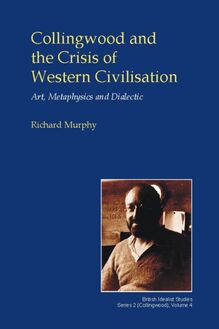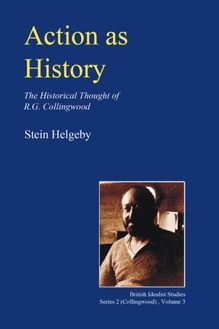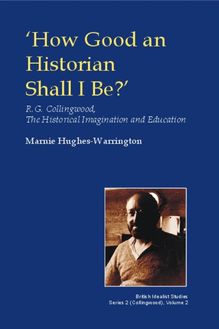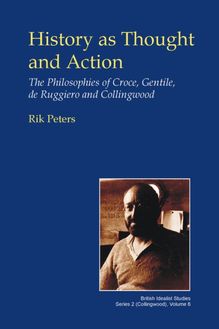-
 Univers
Univers
-
 Ebooks
Ebooks
-
 Livres audio
Livres audio
-
 Presse
Presse
-
 Podcasts
Podcasts
-
 BD
BD
-
 Documents
Documents
-
- Cours
- Révisions
- Ressources pédagogiques
- Sciences de l’éducation
- Manuels scolaires
- Langues
- Travaux de classe
- Annales de BEP
- Etudes supérieures
- Maternelle et primaire
- Fiches de lecture
- Orientation scolaire
- Méthodologie
- Corrigés de devoir
- Annales d’examens et concours
- Annales du bac
- Annales du brevet
- Rapports de stage
La lecture à portée de main
Vous pourrez modifier la taille du texte de cet ouvrage
Découvre YouScribe en t'inscrivant gratuitement
Je m'inscrisDécouvre YouScribe en t'inscrivant gratuitement
Je m'inscrisEn savoir plus
Vous pourrez modifier la taille du texte de cet ouvrage
En savoir plus

Description
Sujets
Informations
| Publié par | Andrews UK |
| Date de parution | 03 décembre 2013 |
| Nombre de lectures | 0 |
| EAN13 | 9781845407490 |
| Langue | English |
Informations légales : prix de location à la page 0,1124€. Cette information est donnée uniquement à titre indicatif conformément à la législation en vigueur.
Extrait
Title page
History as Thought and Action
The Philosophies of Croce, Gentile, de Ruggiero, and Collingwood
Rik Peters
imprint-academic.com
Publisher information
2013 digital version by Andrews UK Limited
www.andrewsuk.com
Copyright © Rik Peters, 2013
The moral rights of the authors have been asserted.
No part of this publication may be reproduced in any form without permission, except for the quotation of brief passages in criticism and discussion.
Originally published in the UK by Imprint Academic, PO Box 200, Exeter EX5 5YX, UK
Originally distributed in the USA by Ingram Book Company, One Ingram Blvd., La Vergne, TN 37086, USA
Dedication
To the Memory of
H.S. Harris (1926–2007)
and
W.H. Dray (1921–2009)
Preface
The reason for publishing History as Thought and Action is that the intellectual and practical legacy of Croce, Gentile, de Ruggiero, and Collingwood was made clear to me in my work after finishing my dissertation on these thinkers in 1998. After my doctorate, and as I began my University teaching, I started a consulting practice; which I called Q&A after de Ruggiero’s and Collingwood’s logic of question and answer. In my consulting practice, I provided training and mentoring for politicians, civil servants, and professional managers in profit and non-profit organisations. Immediately, I discovered that many of the policy and management issues could be elucidated with the help of methods used in the study of philosophy and history and I used my lectures on the philosophy of history at various universities in the Netherlands and my dissertation to define the problems. In this way I discovered the practical importance of historical thinking in society. After some years, Croce’s La storia come pensiero e come azione ( History as Thought and Action ) was no longer a book title for me, but one of the principles upon which I trained people to become more effective in their organisations. Likewise, de Ruggiero’s ethics of historicism became a guideline for organisation development and Collingwood’s notion of absolute presuppositions acquired a very practical significance in the many Socratic dialogues I led. On the function of dialogues in organisations I wrote a book in 2003. [1] In the same year, I received an appointment at the University of Groningen which provided the ideal milieu for further working out my ideas on the relationship between history as thought and action in the Centre of Metahistory and in the Course Learning Histories and Organisations.
This book owes a debt of thanks to many individuals. I thank Teresa Smith for permitting me to cite Collingwood’s manuscripts in my dissertation; all citations reappear in this book. I thank Clementina Gily Reda, a leading authority on Italian philosophy, who never stopped asking me to write this book. I present it to her as a tribute to the long and rich, but unduly neglected, tradition of Italian philosophy. I thank David Boucher for suggesting publishing this book with Imprint Academic, and for his encouragement to finish it. I thank William H. Rieckmann, who gave me many good ideas on Collingwood’s development.
In Groningen, Frank Ankersmit reminded me time and again to work on this book, inspiring me with his thought provoking criticism. Toon de Baets support helped me to continue the work and Dirk Jan Wolffram’s repeated advice to ‘go for it’ got me through the final stages. I thank Christian Garrard for revising the English in the manuscript and Christiaan Caspers for his advice on the translation of the Greek words. Above all, I thank Jaap den Hollander who read the entire manuscript and gave me an important clue to understanding Collingwood’s system.
Finally, I thank Anne, Pieter-Bart, Saskia, and Clara for their unmitigated support over the years. Thanks to them, I discovered that ‘amare’ is more important than ‘intendere’.
A note on citations, translations, abbreviations, and footnotes
All citations are made between single inverted commas. If not otherwise stated, all translations from the Italian have been made by the author. For the special scope of this book the translations are as literal as possible, even if this sometimes leads to deviations from English usage.
All works are fully annotated on the first occurrence. If necessary, the year of completion by the author will also be mentioned in the text, so that differences may occur between the date of completion and the date of publication.
The works of Croce, Gentile, de Ruggiero, and Collingwood are listed in chronological order of first publication in the bibliography of primary sources. This list gives the complete annotation of the work including the edition cited by the author. All other works are listed in alphabetical order in the bibliography of secondary sources.
Since the majority of Croce’s work has not yet been published in the Edizione Nazionale ( National Edition ) the complete annotation of the first publication will be given.
The majority of Gentile’s has been published in the Opere Complete ( Complete Works ) and most of them will be cited abbreviated as OC if not otherwise stated.
All of de Ruggiero’s have been fully annotated.
Collingwood’s manuscripts will all be cited with the deposit number of the Bodleian Library Oxford abbreviated as Dep. folder number/number of manuscript, page.
1 Rik Peters and Peter van der Geer, In plaats van praten. Debat en dialoog bij veranderprocessen, Utrecht, Het Spectrum, 2004 ( Instead of Talking. Debate and Dialogue in Change Processes ).
Introduction: The Dead Past?
This book is an historical reconstruction of the relationship between three Italian philosophers, historians, and political leaders Benedetto Croce (1866–1952), Giovanni Gentile (1875–1944), Guido de Ruggiero (1888–1948), and British philosopher, archaeologist, and historian Robin George Collingwood (1889–1943). These four philosophers were far too independent and original to form a movement or a school of thought, but they shared the belief that the past is not dead, but living, which implies that knowledge of the past is a necessary condition for rational action in the present. It was this idea of history as thought and action that brought the four philosophers together, it was this idea that lay at the basis of their philosophies which won them international reputation, and eventually it was this idea that drove them apart.
In 1896, Giovanni Gentile, then student at the Scuola Normale Superiore in Pisa, wrote a postcard to Benedetto Croce, a private scholar in Naples. It was the beginning of a friendship that would last until 1924. In 1903, the two friends founded La Critica , the journal by which they shouldered a cultural revolution in their country which was soon to be noticed abroad. A year before, Croce had published his Estetica come scienza dell’espressione e linguistica generale ( Aesthetic as Science of Expression and General Linguistic ) which established his name as a philosopher. In 1909, he published Logica come scienza del concetto puro ( Logic as Science of the Pure Concept ) and Filosofia della pratica ( Philosophy of the Practical ), and in 1917 he published Teoria e storia della storiografia ( Theory and History of Historiography ). These four works formed Croce’s Filosofia dello spirito ( Philosophy of the Spirit ), which made him famous both in Italy and abroad. [1]
In the first decade of the century, Gentile was involved in a campaign for educational reform and, in 1907, he was appointed as Professor of Philosophy at the University of Palermo. Four years later, he founded his own philosophy of ‘actual idealism’, or ‘actualism’, with ‘L’atto del pensare come atto puro’ (‘The Act of Thought as Pure Act’). [2] This article formed the basis of Gentile’s philosophical system, which became known as actual idealism, or actualism. This philosophy comprises a philosophy of mind, expounded in Sommario di pedagogia ( Summary of Pedagogy ) published in 1912, a moral and political philosophy in I fondamenti della filosofia del diritto ( The Foundations of the Philosophy of Right ) published in 1916, a metaphysics in Teoria generale dello spirito come atto puro ( General Theory of the Mind as Pure Act ) published in 1916, and a complete logic in Sistema di logica ( System of Logic ) which was published between 1918 and 1922. [3] For two decades these books, which form the core of Gentile’s philosophy, were popular and influential amongst many young intellectuals who joined Gentile in his efforts to modernise Italy.
One of these intellectuals was Guido de Ruggiero, who had studied law and economics in Naples, but whose true passion was philosophy. As a friend of Croce and Gentile, with whom he studied in Palermo, he became a contributor to La Critica in 1911. A year later, at the age of twenty-four, he published La filosofia contemporanea ( Modern Philosophy ), the book which established his name as one of the most promising philosophers of the new generation. [4] At the same time de Ruggiero began his career as a journalist for several newspapers.
In England, the development of Croce, Gentile, and de Ruggiero was closely followed by a small but active group of philosophers led by the Waynflete Professor of Metaphysics at Oxford, J.A. Smith (1863–1939). His most gifted student was R.G. Collingwood, who was already an earnest student of Italian culture before he came to Oxford in 1908. His first publication after his graduation in 1912 was the translation of Croce’s La filosofia di Giambattista Vico ( The Philosophy of Giambattista Vico ). [5] This book, published in 1913, was not only the beginning of a career as a translator and an authority on Italian thought; but also of his own phil
-
 Univers
Univers
-
 Ebooks
Ebooks
-
 Livres audio
Livres audio
-
 Presse
Presse
-
 Podcasts
Podcasts
-
 BD
BD
-
 Documents
Documents
-
Jeunesse
-
Littérature
-
Ressources professionnelles
-
Santé et bien-être
-
Savoirs
-
Education
-
Loisirs et hobbies
-
Art, musique et cinéma
-
Actualité et débat de société
-
Jeunesse
-
Littérature
-
Ressources professionnelles
-
Santé et bien-être
-
Savoirs
-
Education
-
Loisirs et hobbies
-
Art, musique et cinéma
-
Actualité et débat de société
-
Actualités
-
Lifestyle
-
Presse jeunesse
-
Presse professionnelle
-
Pratique
-
Presse sportive
-
Presse internationale
-
Culture & Médias
-
Action et Aventures
-
Science-fiction et Fantasy
-
Société
-
Jeunesse
-
Littérature
-
Ressources professionnelles
-
Santé et bien-être
-
Savoirs
-
Education
-
Loisirs et hobbies
-
Art, musique et cinéma
-
Actualité et débat de société
- Cours
- Révisions
- Ressources pédagogiques
- Sciences de l’éducation
- Manuels scolaires
- Langues
- Travaux de classe
- Annales de BEP
- Etudes supérieures
- Maternelle et primaire
- Fiches de lecture
- Orientation scolaire
- Méthodologie
- Corrigés de devoir
- Annales d’examens et concours
- Annales du bac
- Annales du brevet
- Rapports de stage










